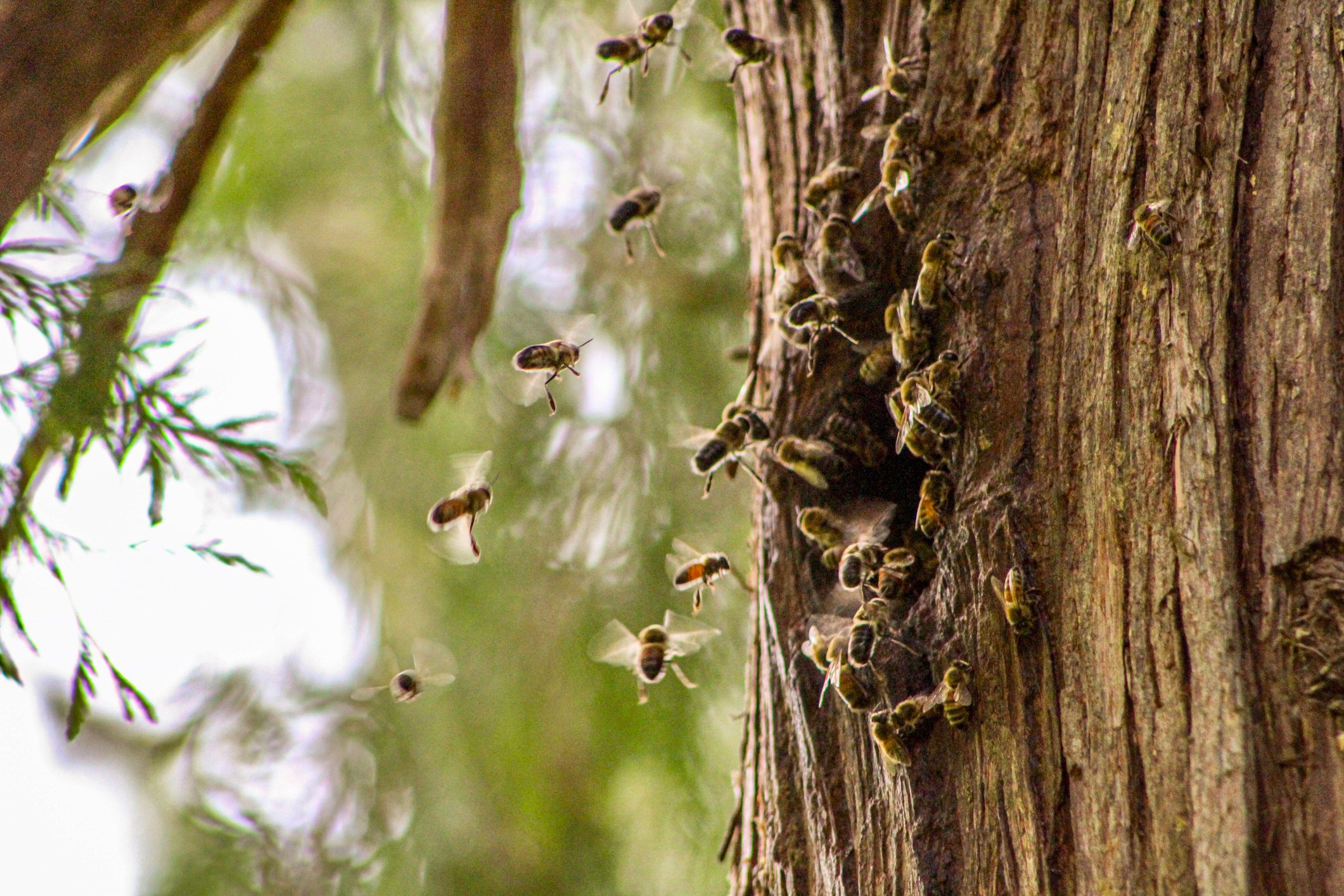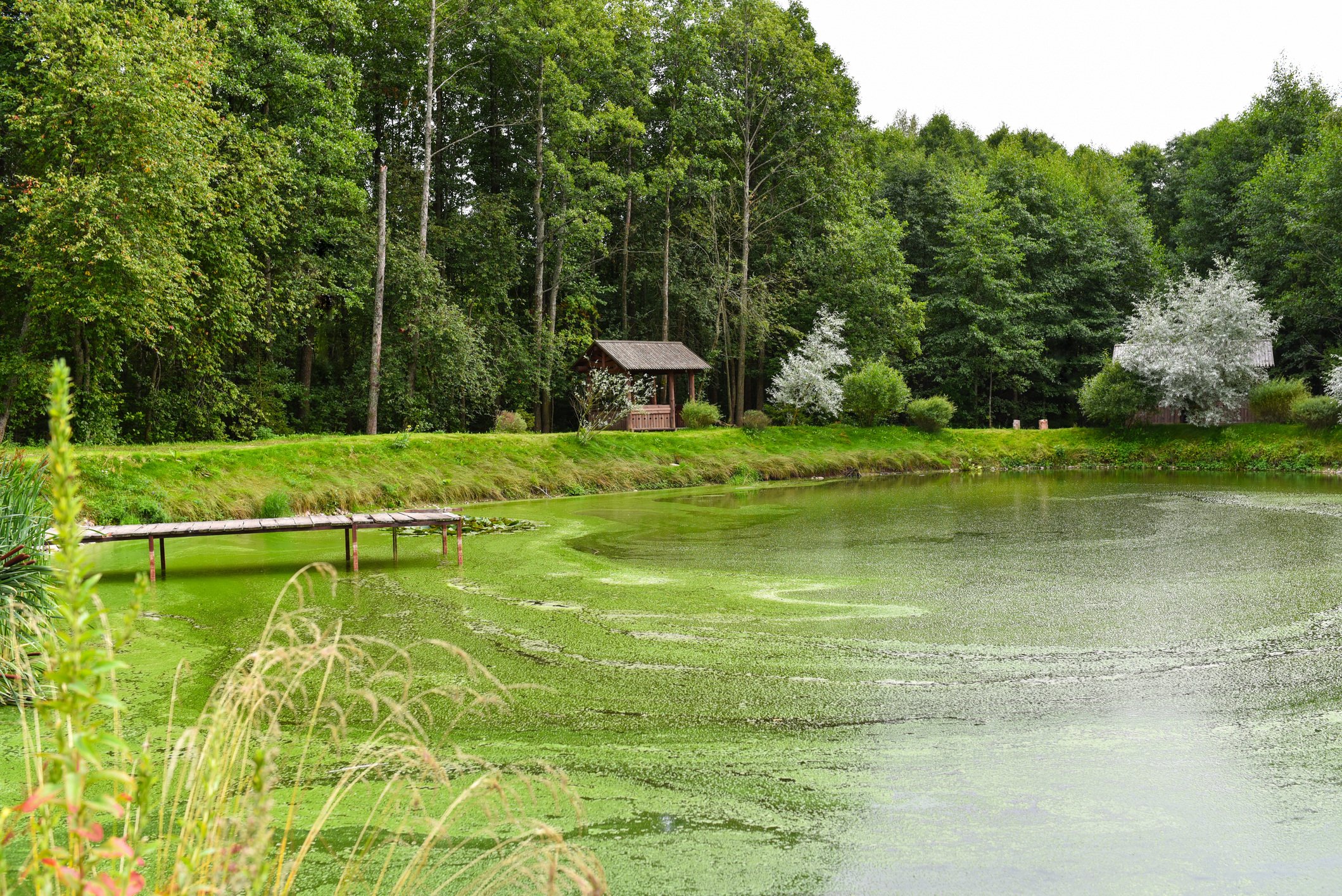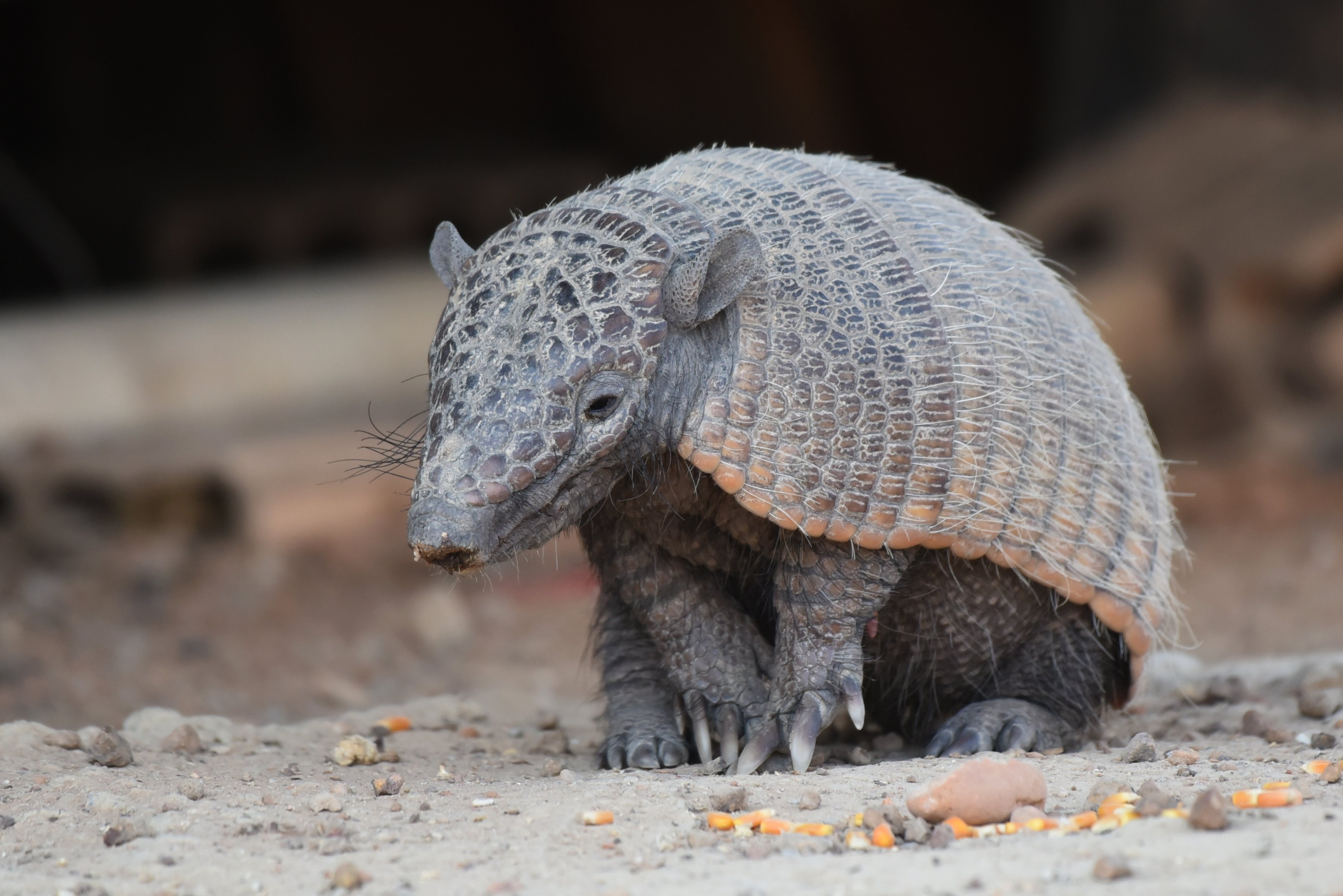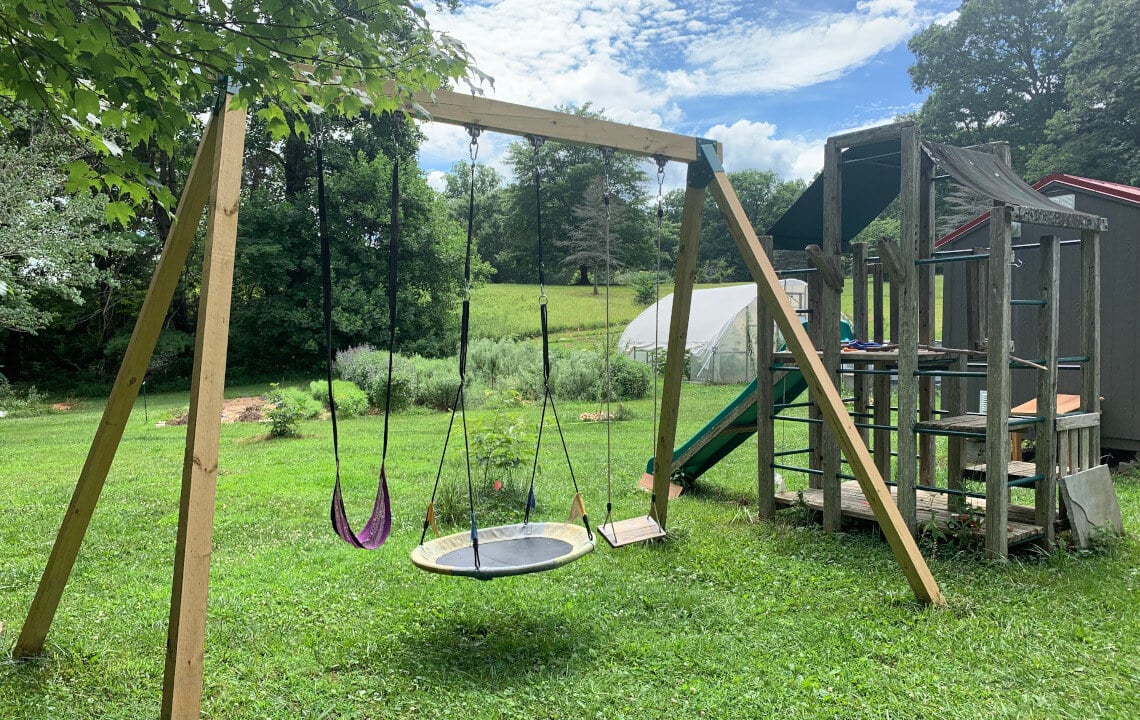Bug sprays are essential during the dog days of summer (especially in the hot, sticky South!). But you don't have to turn to toxic pesticide-based bug sprays to stay safe. Here, we explore the best all-natural bug sprays, based on science, to protect your family and the environment.
Bugs are no joke in the South. From mosquitos to horseflies, gnats to ticks, summertime can feel like a battle between you and an army of insects.
I still remember my Canadian mother’s comments upon her first visit to Georgia in the dead of summer: “It’s like you walk outside here and you’re accosted by at least 20 different types of bugs!”
Unfortunately, bugs can be more than just a big nuisance. Their bites and venom can make you sick.
Ticks are a perfect example.
Once considered a Northeastern problem, these pesky little vectors have migrated south…and brought their tick-borne illnesses, like Lyme Disease and Rocky Mountain Spotted Fever, with them.
Mosquitos are also a problem.
.jpg?width=1000&name=GettyImages-1092283360(1).jpg)
In parts of Florida, for example, they’re known carriers of Zika virus. And in other parts of the South and the rest of the country mosquitoes can transmit Ehrlichiosis, La Crosse encephalitis and West Nile Virus.
Fortunately, the chances of contracting one of these viruses from a mosquito is fairly low.
However, babies, toddlers and young children are more likely to become very ill, hospitalized and even die should they be bitten and infected by disease-carrying mosquitoes.
I speak from experience. Last year, one of my daughter’s second-grade classmates was hospitalized with La Crosse encephalitis. She pulled through, but it was a harrowing experience trying to figure out what was wrong with her. And a younger child may not have fared so well.
This incident, coupled with the growing number of ticks in our area made me get serious about bug spray.
However, as a health-conscious family who lives on an organic farm, chemical pesticide-based sprays are not an option for us.
So, I did a deep dive into the best natural bug sprays that repel ticks and mosquitos. And as it turns out, there are plenty of effective, science-backed options to suit every family’s needs and budget.

The Case for All-natural vs. Chemical Bug Sprays
When it comes to something as important as protecting our children from disease-carrying insects, most of us are conditioned to reach for strong stuff. AKA: the chemical-based bug sprays.
After all, what’s a little chemical exposure compared to contracting something like Lyme Disease?
Although our intentions and rationale may be good, there is a darker side to chemical bug sprays that most people are unaware of.
Most of us are familiar with DEET. We grew up with it, our parents trusted it and we’ve probably used it on our children at some point.
However, DEET has been shown in studies to be toxic to the nervous system and is associated with the following side effects:
- Skin and eye irritation
- Irritation of mucous membranes
- Disorientation
- Staggering gait
- Slurred speech
- Crying out
- Episodes of stiffening into a sitting position, extending of extremities, flexing of the fingers and dorsiflexion of the toes.
- Jaundice
- Aplastic anemia
- Bleeding
- Convulsive seizure or death
- Coma
For all the details, you can visit DEET's Compound Summary on the National Institutes for Health website.
Many of these side-effects are rare. And if a DEET-based product is all you have in a bug-infested environment, it’s probably worth the risk.
However, there’s also the potential of cumulative damage from regular exposure (skin and lung exposure from being sprayed every day for months on end). And that’s an area we don’t know very much about.
Fortunately, there are very effective natural alternatives that give you all the benefits of pesticides …minus the scary side-effects.
Enter Essential Oils: Nature's Original Bug Repellent
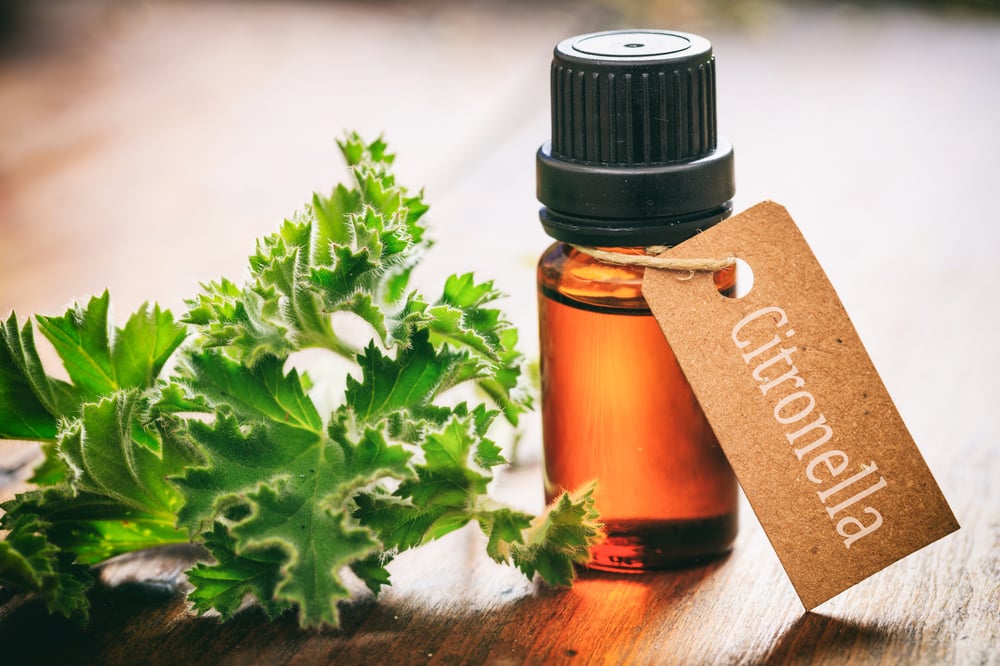
Essential oils have become wildly popular in the health and beauty spaces. However, one of their greatest superpowers lies in their proven ability to repel a variety of bugs.
In fact, people in tropical and subtropical climates have been using plants for centuries as natural insect repellents. And, as science has now confirmed, their effectiveness comes from their essential oils.
Since mosquitos and ticks are common down South, I’ll break down 7 of the best essential oils that have been proven to repel both:
- Lemon Eucalyptus—is the only essential oil recognized by the CDC as an effective natural insecticide against mosquitoes and ticks comparable to DEET1, 2. That doesn’t mean other essential oils don’t work, but it does mean this one works really well. You’ll find it in many pre-made formulas, or you can buy it and make your own.
- Geranium/Rose Geranium—these common potted flowers are some of the best for keeping away ticks and mosquitoes 3. You can plant them around your yard and use the essential oil as a natural topical bug repellent.
- Cedarwood—cedar has long been used as a natural insect repellent among Native peoples. Farmer’s Almanac recommends a simple cedar essential oil spray as a natural insect repellent 4.
- Thyme + Citronella—citronella has been registered as a biopesticide with the EPA since the 1940s, and is well-known for its ability to repel mosquitos. However, researchers found that when it’s combined with thyme, it’s up to 91% effective at repelling ticks too5.
- Lemongrass—in one study lemongrass showed up to 95% efficacy for repelling mosquitoes 6, and there is evidence it works on ticks too 7.
- Spearmint—in one study, spearmint (and thyme) was found comparable to a 20% DEET solution for repelling ticks attached to clothing 8. It’s also excellent for repelling mosquitoes . Bonus: plants from the mint family are also effective at repelling spiders.
In my experience, these oils also repel gnats and other bugs.
This is not an exhaustive list of all the essential oils that can repel bugs. But it should give you a good starting point to begin experimenting with different oils and combinations.
How to Make Your Own DIY Natural Bug Spray

If you’re into essential oils, saving the planet, saving money and being self-sufficient, you’ll love making your own bug spray.
Here's a basic DIY Bug Spray Recipe:
- Combine 1 cup of water, with a quarter cup witch hazel and 20-30 drops pure essential oil.
- Store in a glass or stainless spray bottle (because essential oils will break down plastic).
- Shake, apply and refill as needed.
You can also add the essential oil(s) to a carrier oil, like jojoba or almond oil, and rub it into your skin.
I personally prefer the spray because I can apply it all over (to our hair, shoes, etc.) without a mess. But, the essential oil/oil option is great in a pinch.
Tip: Many DIYers swear by combining several different essential oils to enhance effectiveness. Based on the research, this is probably a good idea…especially if you live in a very buggy area.
Another tip: Make sure you’re buying 100% pure, uncut essential oils from a reputable brand.
You don’t have to spend a small fortune buying from a multi-level-marketing company to get pure products. Just do your research and make sure your oils are 100% pure essential oils that are not diluted down with carrier oil or any added synthetic fragrance. Anything less than 100% pure will not be effective.
Where we live (Western North Carolina), a simple Rose Geranium spray always does the trick.
Effective Premade Natural Bug Sprays
Not into making your own all-natural bug spray? No problem. Here are a few excellent all-natural brands that are easy to find:
- All Terrain Herbal Armour, a combination of citronella, peppermint, cedar, lemongrass and geranium in non-GMO soybean oil (they have a kid’s version too).
- Quantum Buzz Away is a great smelling option, and contains geranium, cedarwood, peppermint and lemongrass with castor oil.
- Repel Lemon Eucalyptus, is one of the most popular natural bug sprays and contains lemon eucalyptus for 6 hours of bug protection.
- Babyganics has a nice gentle formula for babies containing citronella, peppermint, rosemary, lemongrass and geranium.
- Badger Organic Bug Spray, is a great one for purists and contains citronella, cedar, lemongrass, rosemary, geranium) and peppermint in a castor oil/soybean oil base.
If you must use chemical bug spray...
If you or your children are in the deep woods and you feel you must use “the hard stuff” (or that’s your only option), you can reduce exposure by applying it to shoes-only and/or on clothing vs. directly to large areas of the skin.
It’s also a good idea to spray it outdoors, and hold your breath while you spray it and wash your clothes ASAP. This reduces inhalation and ingestion.
Do not apply indoors, in tents, etc. And have children remove their clothes before going to bed, sitting on furniture, etc.
To wrap it all up...
Bugs are generally just a nuisance. But they can be really bad news…especially for babies and young children.
Fortunately, there are effective natural alternatives to synthetic pesticide-based bug sprays that are supported by science.
Whether you make one yourself or try out one of the brands listed above, you may be surprised how well they work…I know I was!
Wishing you a happier, healthier and less-buggy summer.
References:
- :https://www.ncbi.nlm.nih.gov/pmc/articles/PMC3059459/
- https://wwwnc.cdc.gov/travel/yellowbook/2020/noninfectious-health-risks/mosquitoes-ticks-and-other-arthropods
- https://pubmed.ncbi.nlm.nih.gov/23528036/
- https://www.farmersalmanac.com/7-natural-tick-remedies-work-27452
- https://pubmed.ncbi.nlm.nih.gov/28645519/#:~:text=Clove%20bud%2C%20creeping%20thyme%20and,at%20the%20concentration%20of%203%25
- https://www.ncbi.nlm.nih.gov/pmc/articles/PMC3059459/
- https://www.ncbi.nlm.nih.gov/pmc/articles/PMC3217679/
- https://pubmed.ncbi.nlm.nih.gov/31578646/

















